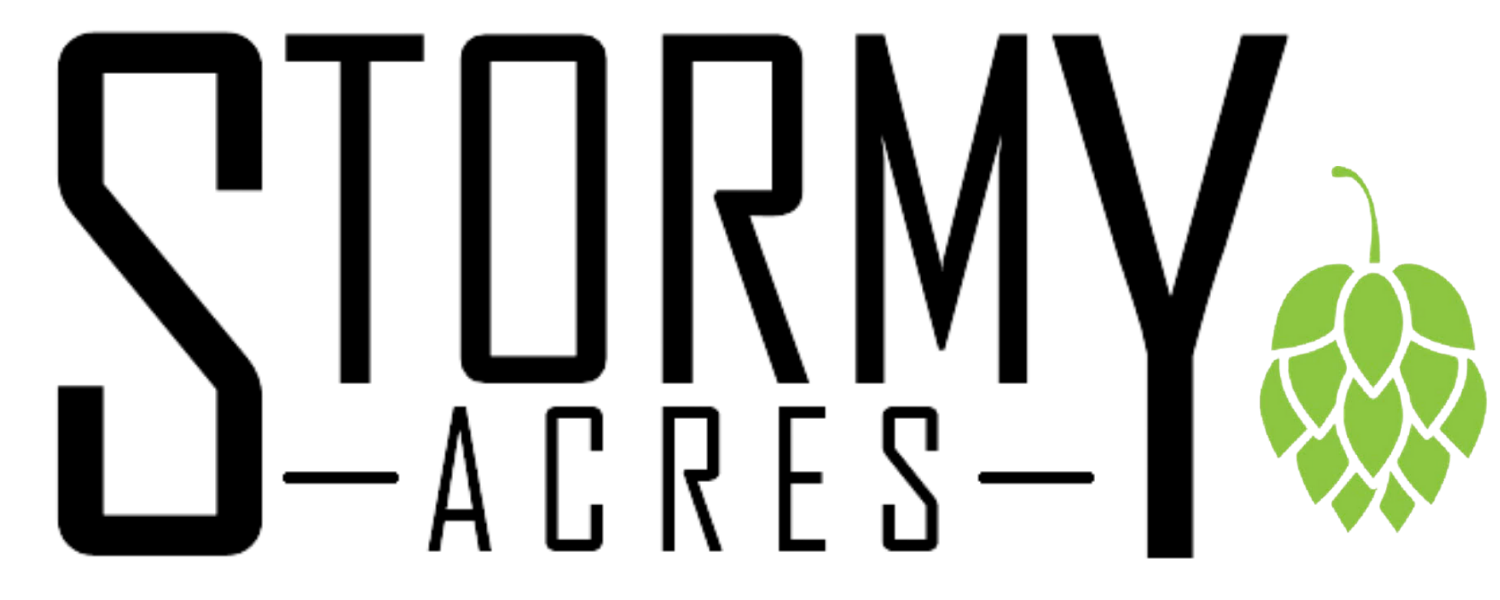
originally dated Aug 9, 2020
One of the most interesting aspects of researching for this adventure was reading about all of the varieties of hops available.
Beer is made using water, barley and yeast. In early beer making days gruit was added to flavour the beer and it could be any combination of herbs and spices and varied from place to place. By the 15th century hops were being used more than any other variety of gruit for two reasons; the bitterness it offered to balance the sweetness of the brewed malt and the preservative qualities they add, extending the life of the beer. By 1516 they were so important to beer making that they were one of only 3 ingredients allowed in beer according to the German Purity Law: water, barley and hops (yeast was later added to the list).
Hops are so much more than a preservative to modern beer. They offer an almost infinite variety of flavour depending on the hop chosen, the way they are added to the brew, and when they are incorporated into the recipe.
There are approximately 150 named varieties of hops grown around the world. We attacked it the only way I know how - spreadsheet. All of the info I could find was compiled and laid out.

We agonized over the choices available to us. Covid helped narrow our choices because of the border being closed. Of course international shipping is available, but shipping plants across the border is complicated and Covid didn’t help. So we ruled out American suppliers.
We decided to choose 4 main varieties.
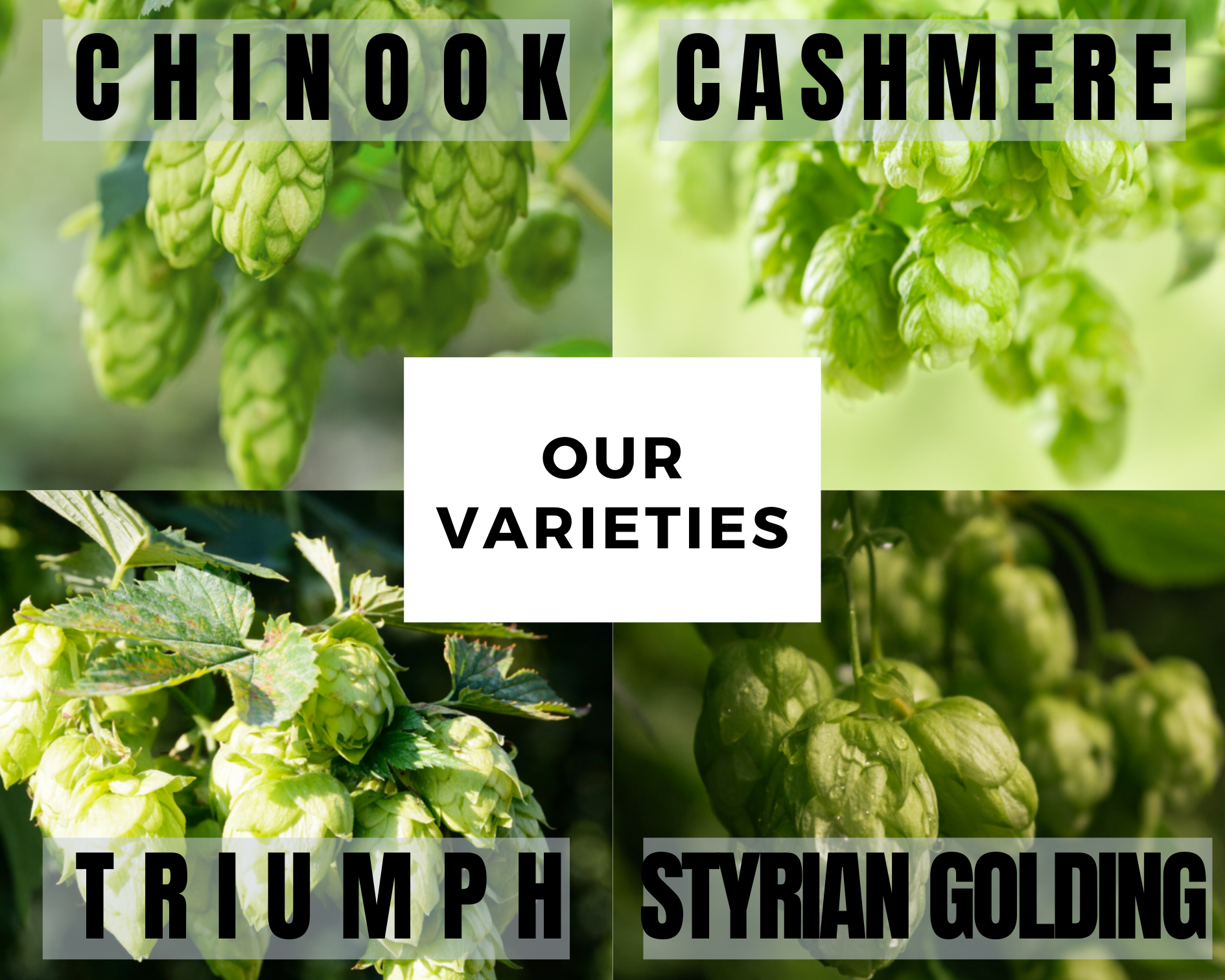
CHINOOK is a dual purpose hop. This means that it has excellent bittering abilities (which is based on its Alpha acid content) as well as flavour and aroma. One of the original ‘C’ hops, Chinook is well known for its spicy and resinous pine aroma with a large grapefruit flavor that accentuates its clean bitterness. Initially bred and used for bittering, it is now known for its full, complex fruity and piney contribution that balances out its high alpha content that can be used in any stage of the boil and in any style.
CASHMERE is a very unique dual-purpose hop. Appropriately named Cashmere for the smooth flavour and bitterness it imparts. When used early in the boil, its Alpha clocks in at 7-11% and can impart spicy, woody and herbal notes along with a polished bitterness. When used later in the boil, it imparts aromas of tropical coconut, melon, pineapple, peach, tangerine and a touch of grapefruit with a similar flavour profile of coconut, melon, tangerine, lime, pineapple and lemongrass. The later you use it in the boil, the more coconut, sweet citrus and lemongrass will come through that otherwise might have been boiled off. A great versatile dry and wet hop addition.
TRIUMPH is an exciting new variety released by the USDA breeding program in 2019. Bred as a high alpha aroma hop, Triumph imparts intense fruity, peach, lime and orange with hints of spice, pine and bubblegum. With parentage of Nugget, Brewers Gold, East Kent Goldings and Hallertau, it has high myrcene and huulene levels with low cohumulone content, that produces higher than normal bittering capabilities and a lot more flavour.
STYRIAN GOLDING is a spin off of old school Fuggle evolved through terroir and time. Styrian Golding became a great aroma hop imparting smooth resinous, earthy flavours with subtle and delicate noble, white pepper aromas. Light bitterness when used early and spicy, earthy notes when used late. A versatile hop used in any stage of the brew and in any style.
While researching I had a great conversation with a gentleman from Great Lake Hops. He suggested the idea of planting a dozen or so plants in a couple of different varieties that we were also interested in. We planted a bakers dozen of 4 varieties. The idea being it will be enough hops to throw in a unique harvest brew.
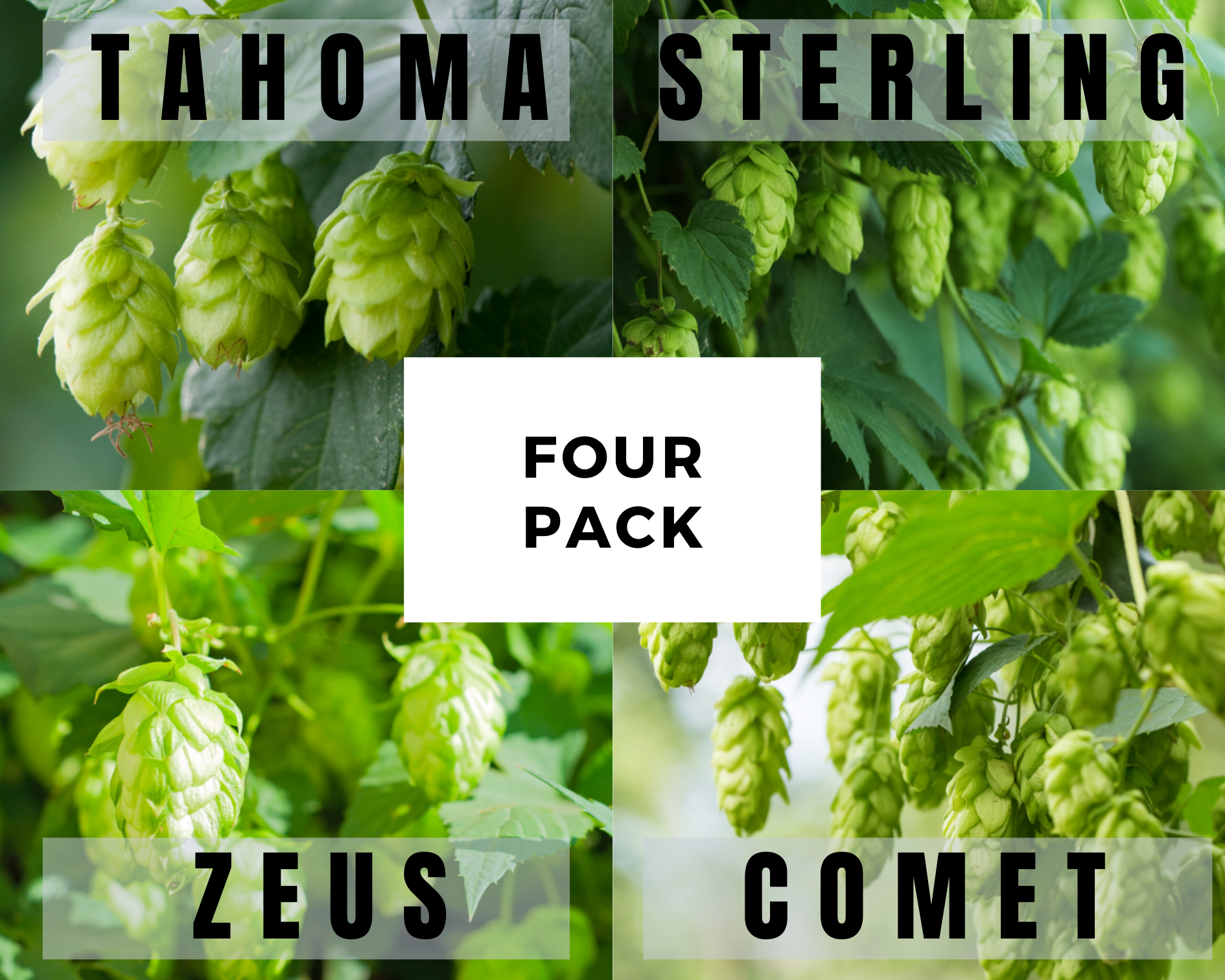
We also added 5 plants of each Teamaker and Galena.
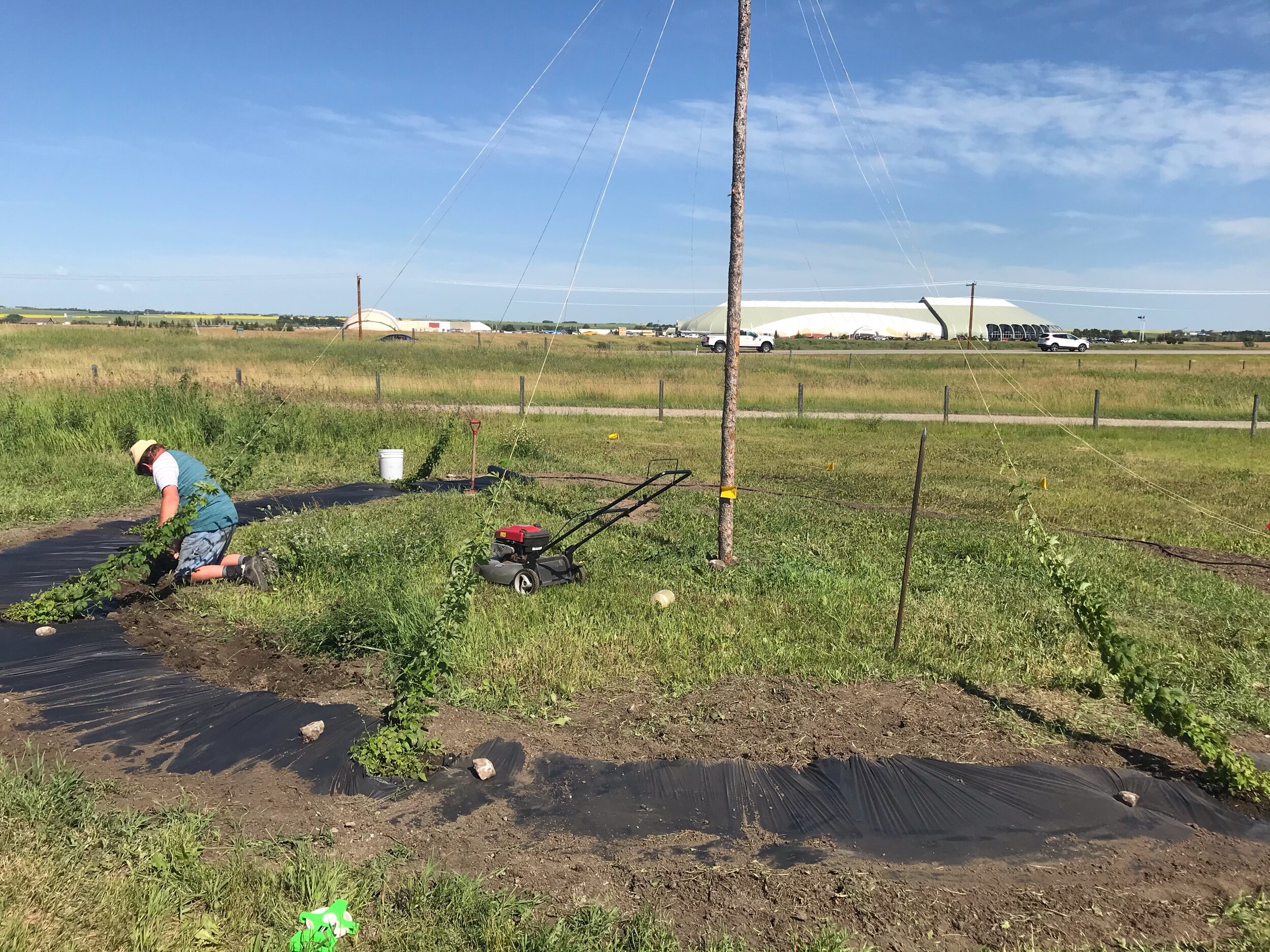
Teamaker is an interesting variety. It has very, very low alpha acids, which makes it less desirable for beer making, but interesting for beauty products and essential oils.
When deciding what to plant we also had to decide where we would get them from, and how to plant.
All commercial hops yards are planted with all female plants. The female plant produces the flowers/cones that are used in beer making. If there is a male plant present there is fertilization and the cones turn to seed and they are no longer useful. So the men are kept away and all plants are clones of their mothers. New plants can be created from cuttings of existing plants. These are sold as plugs or potted plants. The plants themselves also send out underground runners, called rhizomes, to create new plants.
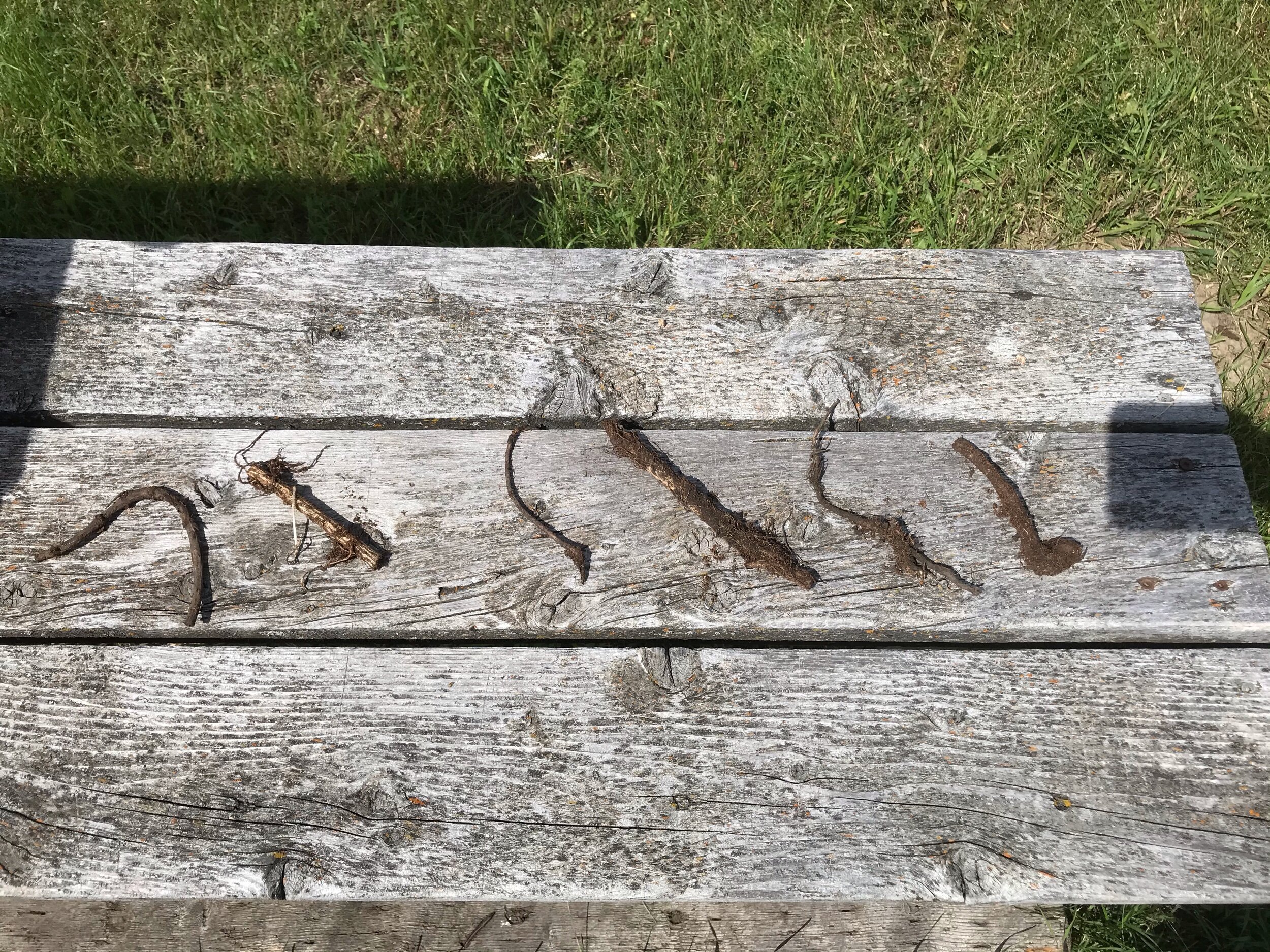
Rhizomes
We ordered 2 dozen rhizomes of Chinook from Left Field Hops in BC. We visited their farm last summer.

The rest of our Chinook and our 4 pack were ordered as 4” potted plants from another BC grower.
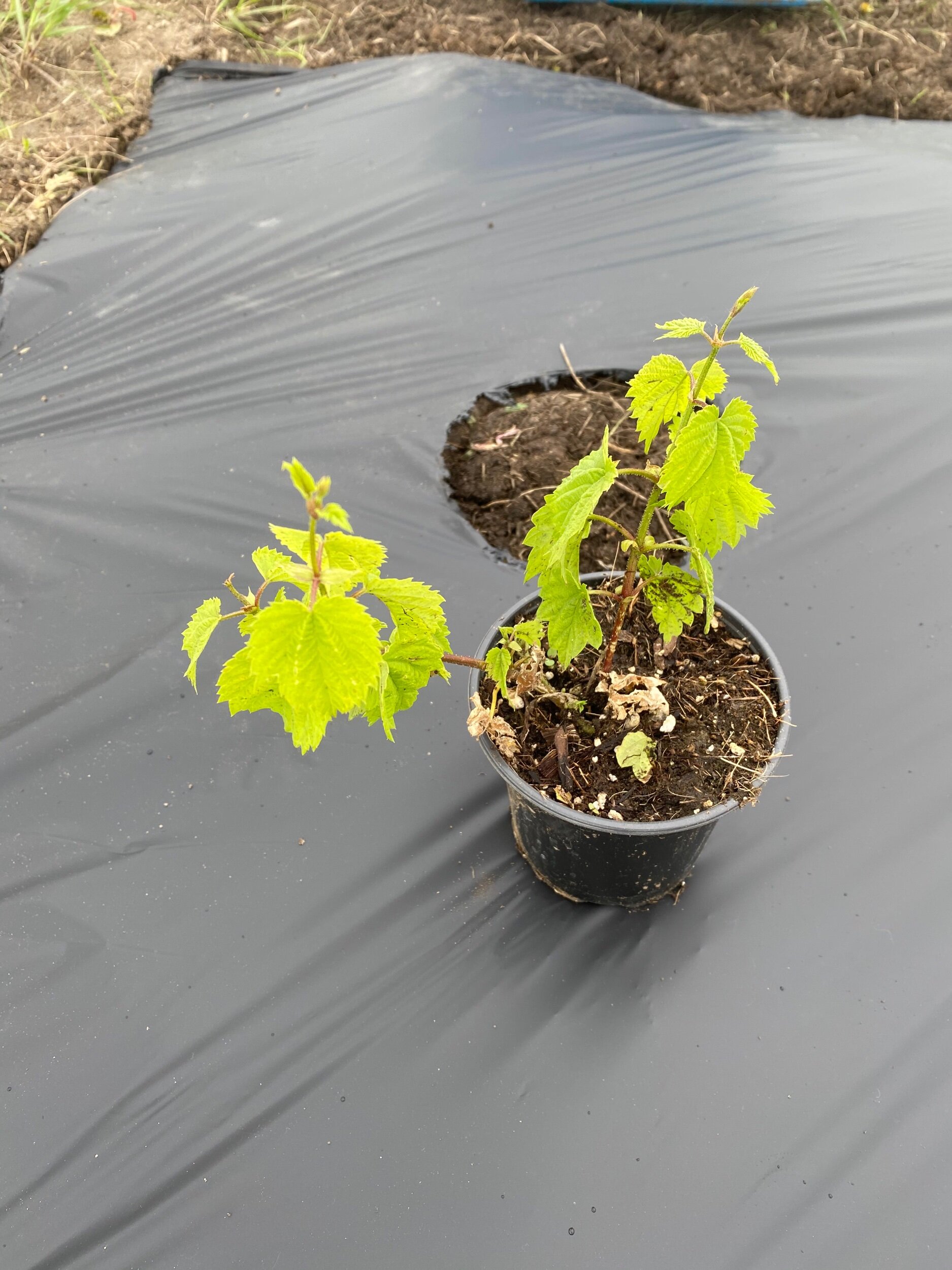
We ordered the Triumph, Cashmere, Styrian and Teamaker as plugs from NorthEast Plants on the east coast. There are 55 plants in that little tray.
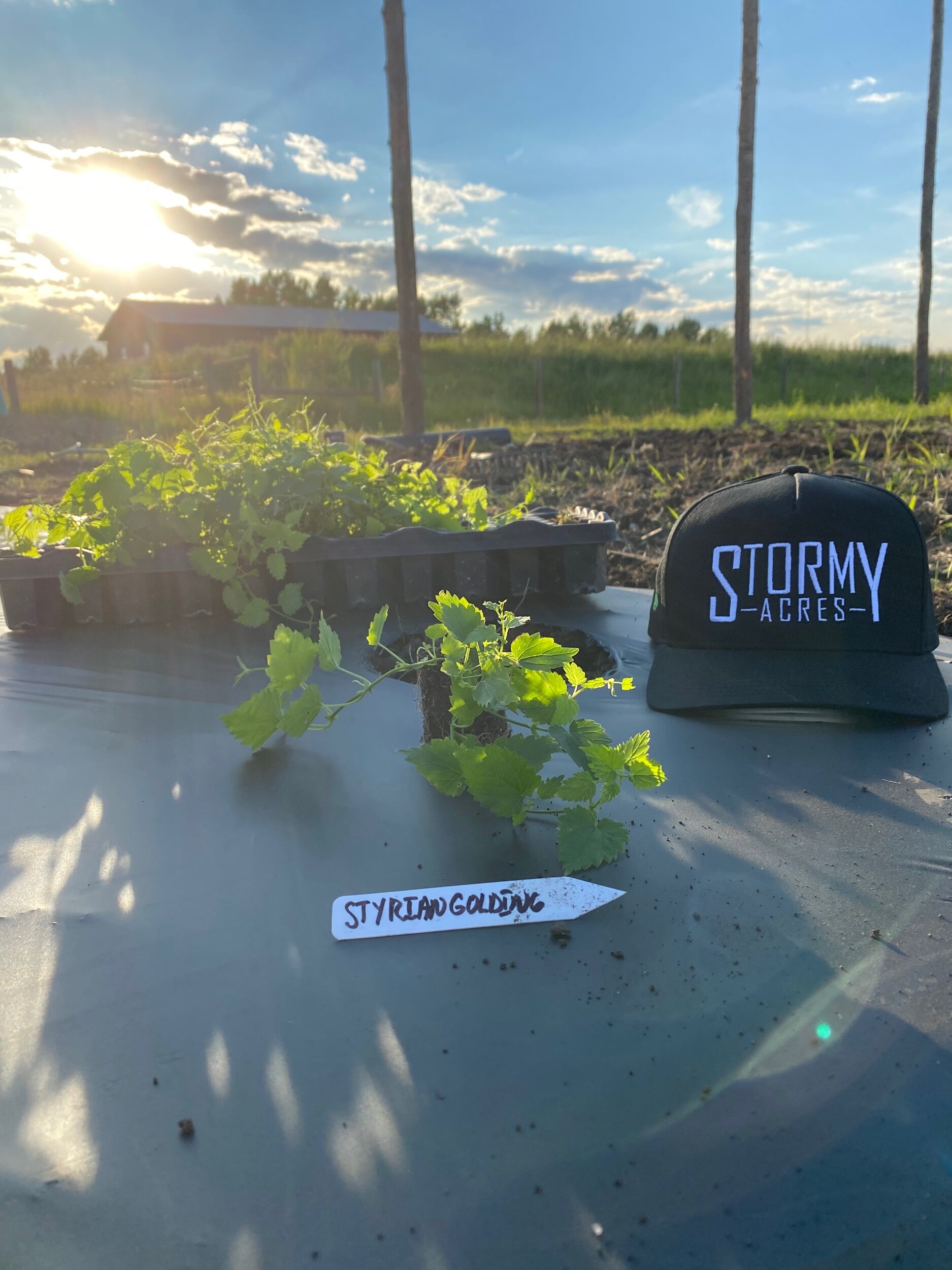
We also had the opportunity to purchase some full grown crowns from another Alberta Hopyard, Water Valley Hops. They had 5 three year old crown of Galena they were selling.

